Texas 4-H Congress gives up-close look at state’s legislative process
Members write bills, play role of legislators and lobbyists during biannual exercise in civic engagement
Every two years, during the Texas 4-H Congress, senior Texas 4-H members travel to Austin, hobnob with politicians and learn firsthand how the Texas Legislature works.
Texas 4-H Congress is a four-day mock legislative experience held inside the Texas Capitol by the Texas A&M AgriLife Extension Service, which administers the Texas 4-H program. Typically, about 250 Texas 4-H members in grades 9-12 participate in the event, assuming the roles of legislators, lobbyists and members of the media to better understand the state legislative process.
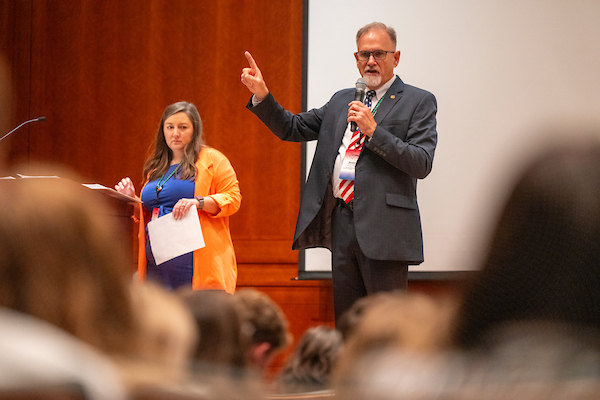
The event also provides hands-on experience with bill writing and helps the 4-H’ers develop their leadership, parliamentary procedure, public speaking and debate skills. They also learn the importance of working together and respecting different opinions.
“This is a unique opportunity for 4-H members from throughout the state to put what they have learned about civics and leadership to practical use,” said Montza Williams, Ed.D., AgriLife Extension’s state 4-H program director. “They are asked to write a youth-oriented bill and to take on the role of those key figures involved in the various aspects of that bill. It is an exercise in civic engagement they will remember for the rest of their lives.”
Preparing and submitting a bill
All Texas 4-H Congress participants are required to submit a bill, and any 4-H member may submit a bill for consideration and debate. The bills written and sponsored by 4-H members focus on issues concerning Texas and Texas youth.
“Writing and submitting a bill provides each 4-H member the opportunity to participate in an interesting and educational exercise in how legislation is introduced, debated and brought to a vote,” said Megan Logan, 4-H and youth development program specialist, Bryan-College Station.
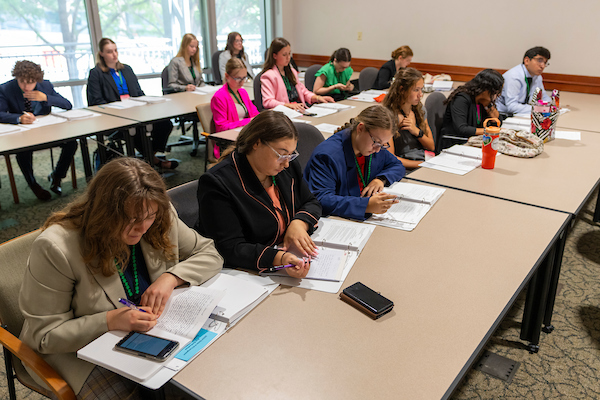
Participants then act as members of the following committees:
- Agriculture and Livestock.
- Education.
- Energy and Environment.
- Government, Finance and Appropriations.
- Homeland Security and Public Safety.
- Judiciary and Juvenile Justice.
- Public Health and Welfare.
In a mock session, bills are assigned to the appropriate committee, debated in committee meetings, and then further debated on the floor of the House or Senate.
“If a bill is successful in negotiation and the legislative debate in all three stages, it is delivered to the governor of Texas 4-H Congress for a signature or veto,” Logan said. “We also provide copies of all the bills signed into law during the event to the Office of the Governor for review.”
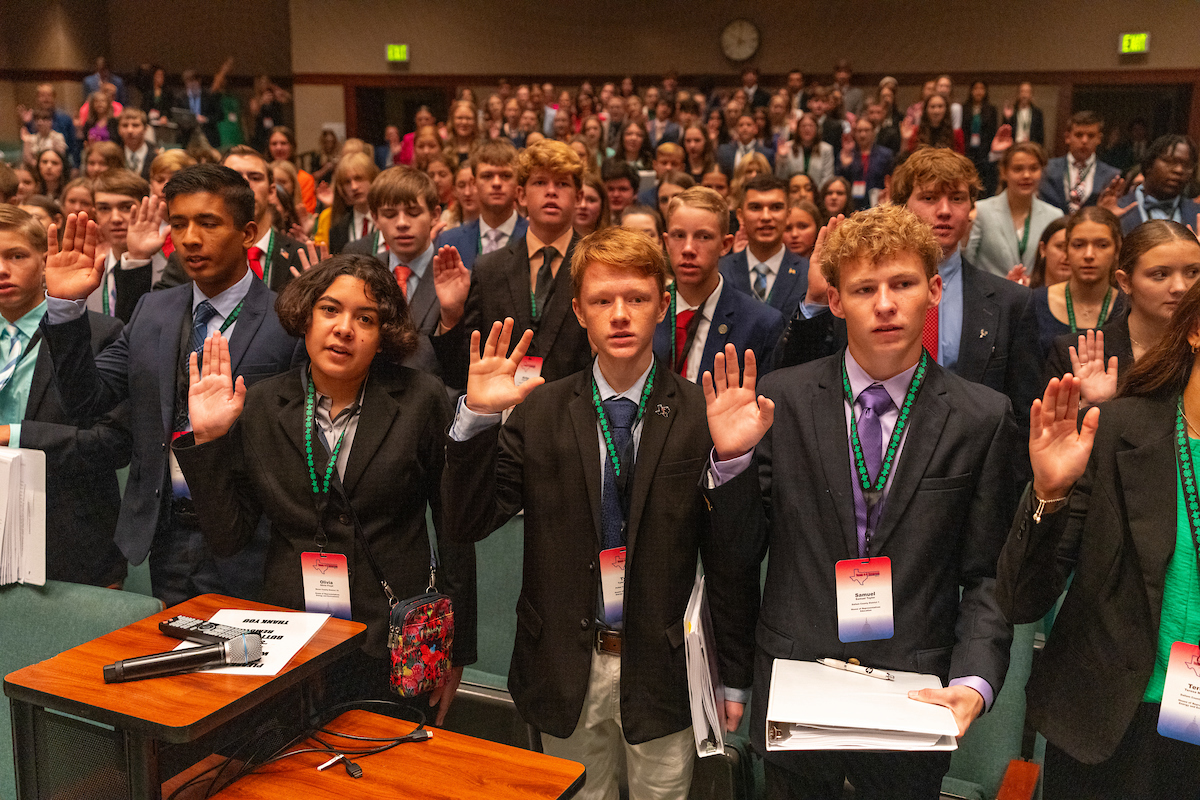
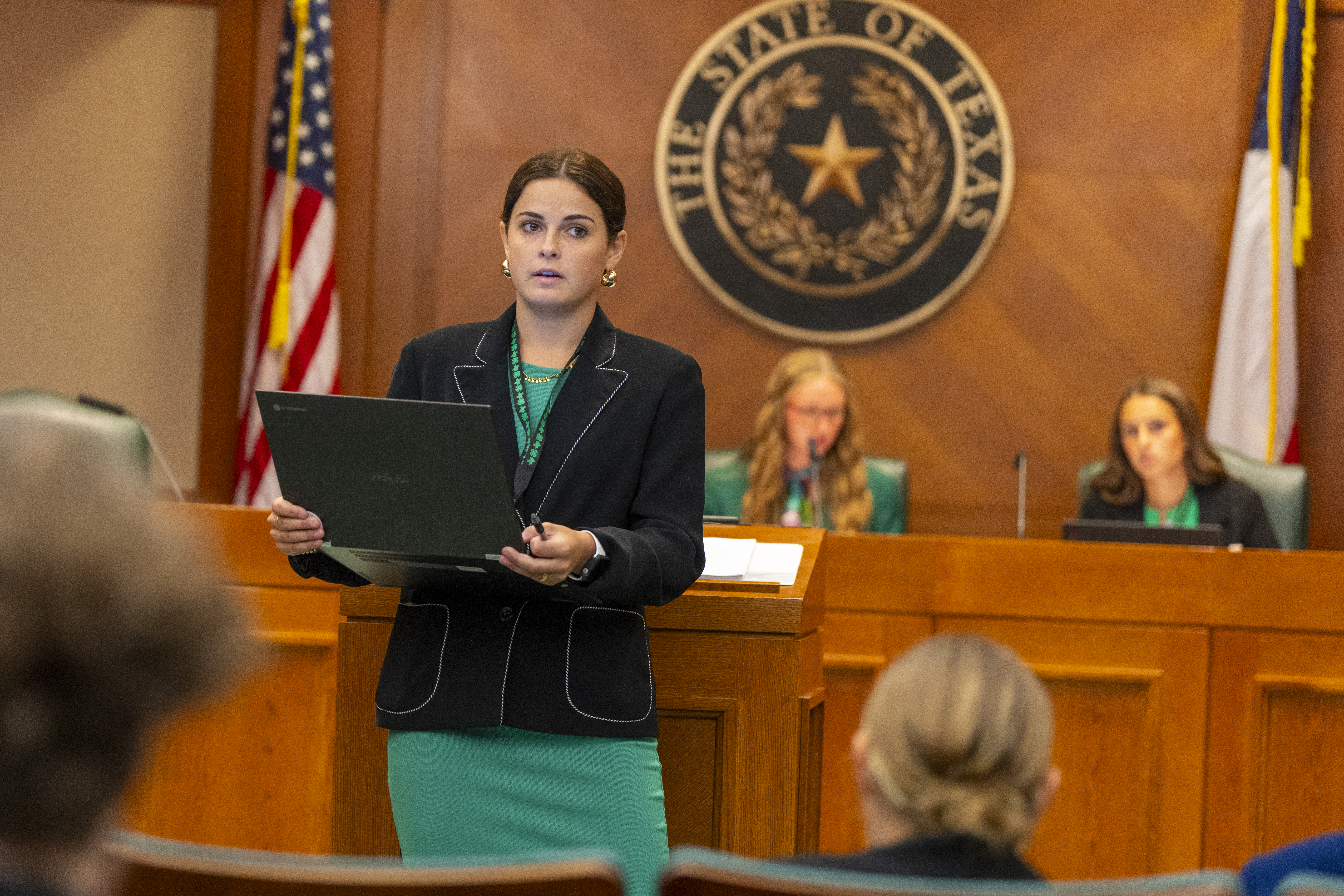
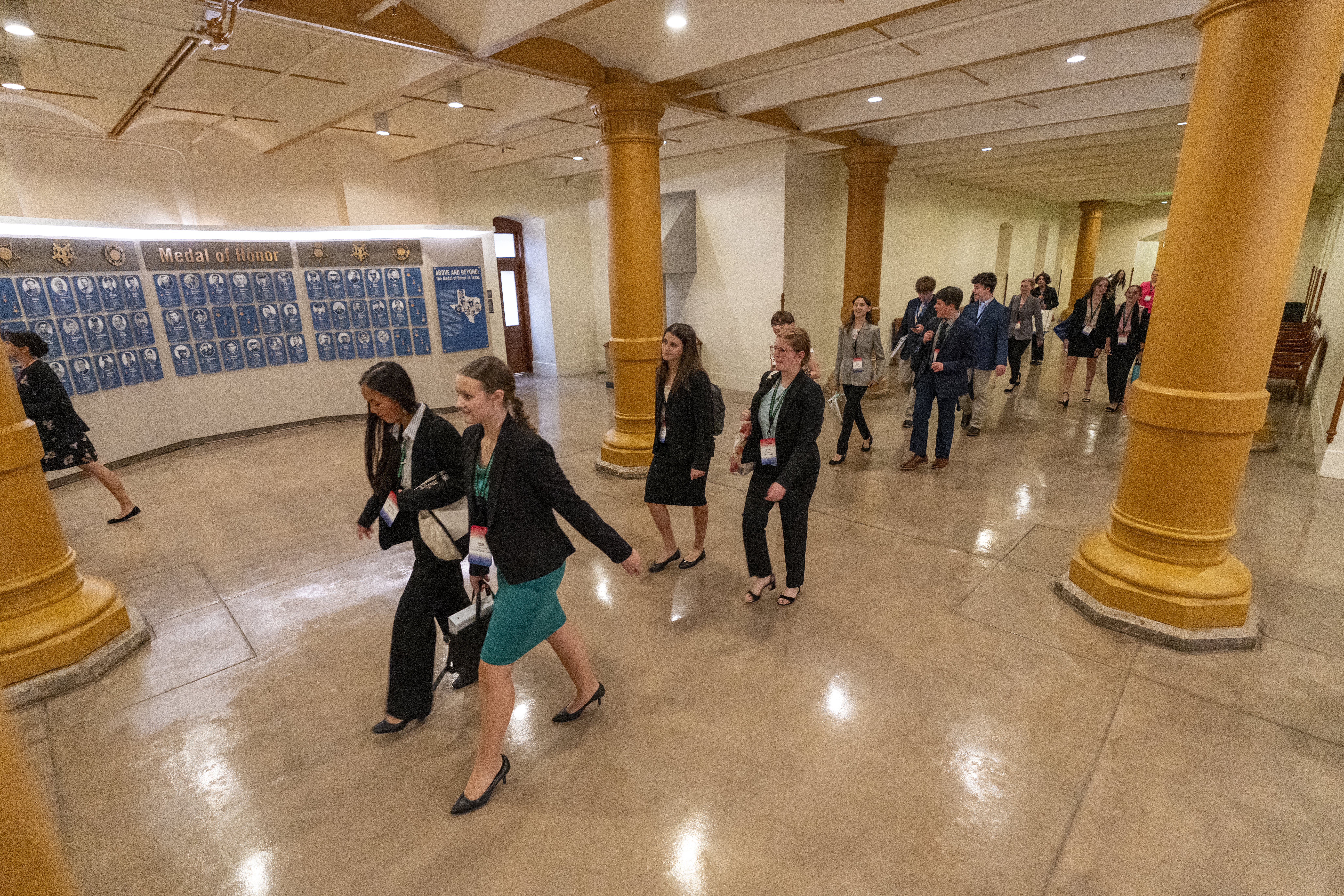
Roles and responsibilities at 4-H Congress
During Texas 4-H Congress, teams and groups represent the legislators, communicators and influencers who provide input toward the passage of bills and development of political policy.
The opportunity to serve in one of these leadership roles is generally open to Texas 4-H members who have or are currently serving on the Texas 4-H Council or District Council or as ambassadors of various Texas 4-H programs, Logan said.
They include:
- The Youth Leadership Team, who serve in various legislative roles, including but not limited to the governor, lieutenant governor, speaker of the house and floor leaders.
- The Press Corps prepares a daily news report and works jointly with Texas 4-H STEM Ambassadors to obtain information, photographs and updates and post them to the Texas 4-H Congress website in a timely manner.
- Lobbyists select specific bills and lobby for their passage or failure. By explaining the positives and negatives during the lobbyists’ reception event and by messages and individual conversations, lobbyists try to persuade members to vote in a certain way.
“Texas 4-H Congress truly makes a lasting and often life-changing impact on the youth who attend,” Logan said. “We have heard from several youths over the years who had a very different trajectory planned for their career but then switched to some aspect of politics after participating. The youth who participate leave the event with a fire under them to make change for their community and the knowledge of how to do that.”


